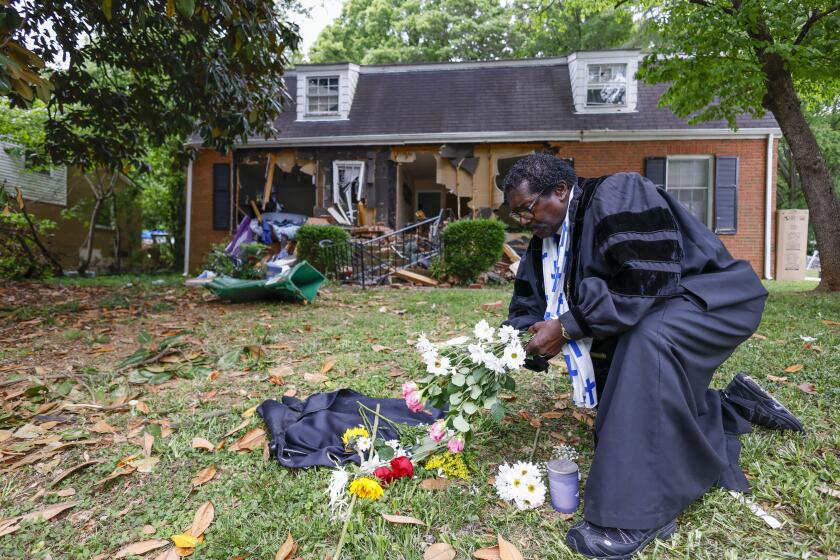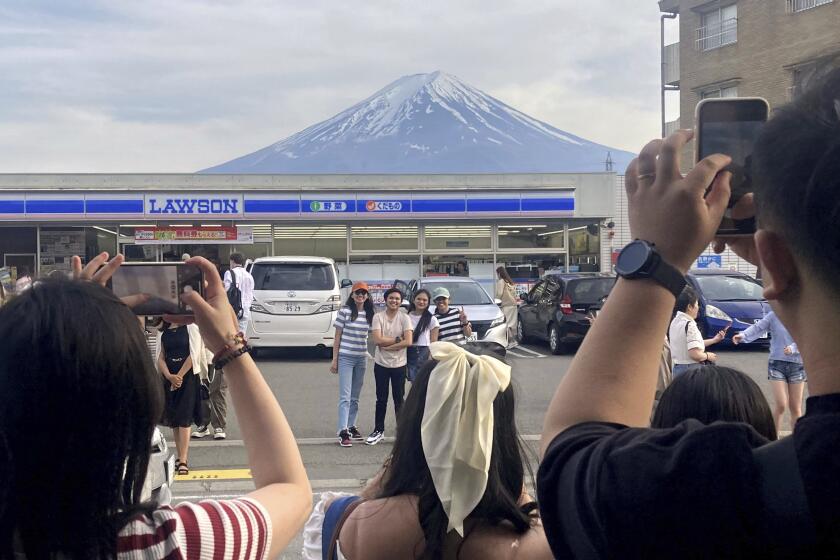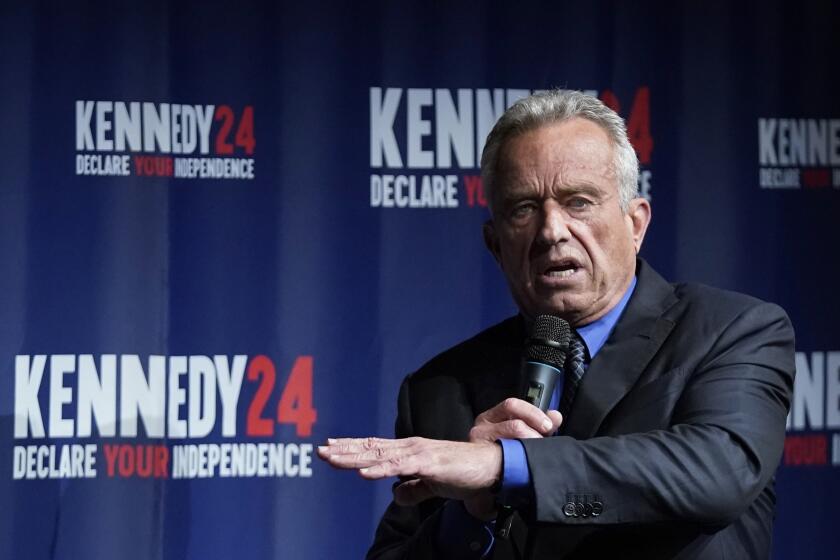The Need to Belong Begets Racial Violence
“You don’t belong here!” Witnesses say that was the shout of a group of white teen-agers who pursued and clubbed three black men outside a pizza parlor in Howard Beach, Queens, New York, on Dec. 20. The men were evidently in this white neighborhood by chance, their car having broken down. They became victims of the year’s most notorious racially-inspired violent act. One met his death while trying to escape the attackers.
“You don’t belong here!” Each day the public hears a similar new taunt. On Dec. 23, in Jamaica, Queens, New York, some black teen-agers in their turn attacked a white student. They shouted “Howard Beach, Howard Beach!” The season’s chants seem to deal with places and people--with who belongs where, or what one expects where. New York Mayor Edward I. Koch would have located the Howard Beach incident elsewhere: “I’d expect this kind of thing to happen in the deep South.” And a deep South mayor, W. W. Godbold of Brookhaven, Miss., replied in kind. Referring to Koch, Godbold said, “That Jew bastard. I believe Jews like him . . . don’t know the hell what they are talking about . . . . He has murders up there every minute.”
There will be more shouts and chants, charges and countercharges. What they have in common is the notion that there are places where “we” belong and “you” don’t, places where we “expect” your evil behavior as opposed to our good behavior. Most such cases involve race. It is almost always a key element in notions of who belongs to whom and where. This season a pattern was evident in additional racial incidents at campuses, whether at The Citadel down South or Amherst up North.
It’s all about belonging . To belong--I looked it up--is a positive concept. It means “to be connected with in various relations, to form a part of . . . for example a family, society or nation, . . . to be a native or inhabitant of a place.” The word may derive from Middle English ideas of “soothing” or “yearning.”
Humans are necessarily social animals who must “belong” to others if they are to survive childhood, or simply to survive. They have to be “connected in various relations.” They draw strength from--and are nurtured by--family, congregation, tribe and club. To be uprooted, to belong to no place, is the great tragedy of displaced persons, refugees, aliens. To belong is to know a group where people can trust and extend trust--to have a place whose earth one can cherish, whose airport Tarmac one can kiss, whose landscape an inhabitant can describe as “God’s Country.” Beautiful.
With beauty comes terror. Something in humans also leads them to fear for their places of belonging, to close off the circle of who belongs and who does not. The white youths in Howard Beach and the black youths in Jamaica assuredly thought of themselves as strong. They gained a sense of strength by belonging, even if momentarily, to a crowd or a crowdlet of their kind and to a place--some turf. Words like Benjamin L. Hooks’ term for the Howard Beach youths could apply to all: “would-be Rambos.” Descriptive terms such as “macho” and “vigilante” well suit self-described defenders of place.
While they think they are strong, the rest of us don’t need a professional psychologist to realize they are weak. Anthony Cipriano is a 16-year-old schoolmate of Jon L. Lester, one of the Howard Beach accused. Lester, he said, “was always trying to be bigger than he was. Maybe he was insecure.”
Blacks are driven to insecurity about making phone calls from white places like Howard Beach. It’s a community described as “neighborly” by those who say they belong there. Some Howard Beach whites say they have reason to be insecure about black criminals who, they claim, come by night to steal their “belongings.” New Yorkers are insecure about the deep South, and Mississippians like Godbold are secure only in their own place of belonging, far from the crime-filled, Jew-filled New York of their perceptions.
If we could pull up the roots of insecurity or assure security, both in the inward life and in external circumstances, there might be fewer events like those at Howard Beach. Yes, these recent racial incidents have multiple causes. Many of them are subtle and all of them, when raised as possible explanations, are controversial. Some critics simply fault the Reagan Administration for creating a climate in which racial attitudes are permitted to worsen. Others, no doubt wide of the mark in the Howard Beach incident, fault such economic problems as layoffs for creating such a climate and encouraging the incidents. Taken together, such charges do not go deep enough.
Philosophers, theologians, psychologists and therapists have long busied themselves with the concept of belonging. Not to belong--to God or parent or neighbor or nation--is to be nobody; to belong too much is to be smug; to be insecure about belonging is to be dangerous. When race complicates the love and the fear for one’s place, or when tribalism in the name of the gods leads the insecure to banish or attack the non-belongers, human nature appears in its most dark and ominous form.
Only Utopians envision a world of human security, where everyone could be secure enough to be truly open to others. Such a world would be made up of saints and saints always take risks. They look weak, but they stand between warring mobs, their lives in jeopardy. They set examples that shame attackers at pizza stands or taunters in the public square.
Saints, in the real world, are in short supply, as always. The rest of us, mere citizens, do not have to be passive and benumbed bystanders in the face of violence. Howard Beach, a community of nice people, good kids, has shown its other side: bad seed, bad eggs, bad guys. This sight jolts us into awareness, once again, of how thin the veneer of civilization is, how close to its surface is the jungle in all the places we claim to belong. That awareness can lead to constructive action. We have already seen some, among responsible citizens and church leaders--reconcilers with the courage to stare down violent anger on all sides.
There are too many insecure people and too many warring passions in the world for us to expect Utopia or the Kingdom of God come tomorrow. There may be enough secure people who can restrain passions as they begin working toward more livable communities today.
More to Read
Start your day right
Sign up for Essential California for news, features and recommendations from the L.A. Times and beyond in your inbox six days a week.
You may occasionally receive promotional content from the Los Angeles Times.






